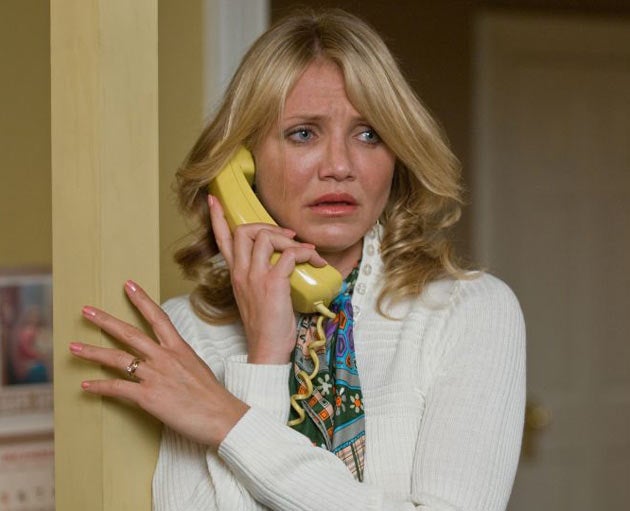The Box (12A)
Director's box of tricks fails to push the right buttons

Your support helps us to tell the story
From reproductive rights to climate change to Big Tech, The Independent is on the ground when the story is developing. Whether it's investigating the financials of Elon Musk's pro-Trump PAC or producing our latest documentary, 'The A Word', which shines a light on the American women fighting for reproductive rights, we know how important it is to parse out the facts from the messaging.
At such a critical moment in US history, we need reporters on the ground. Your donation allows us to keep sending journalists to speak to both sides of the story.
The Independent is trusted by Americans across the entire political spectrum. And unlike many other quality news outlets, we choose not to lock Americans out of our reporting and analysis with paywalls. We believe quality journalism should be available to everyone, paid for by those who can afford it.
Your support makes all the difference.Richard Kelly was only 25 when he wrote and directed Donnie Darko, a bamboozling high-school-sci-fi-mystery-thriller-comedy that no one really understood, but which most people recognised as being – to use the precise critical term – pretty cool. Then everything went turkey-shaped. It took Kelly six years to complete his follow-up, Southland Tales, and that was such an incomprehensible folly that it looked as if his career from then on would be confined to shooting wedding videos.
Kelly's third film, The Box, appears at first to be his penance: a focused star vehicle that proves he can sell tickets if he needs to. Extrapolated from a Richard Matheson short story, it stars Cameron Diaz as a married schoolteacher and mother who is visited one afternoon by a mysterious stranger (Frank Langella). Suave and velvet voiced, despite having only two-thirds of a face, he gives her a wooden box with a button on the top. If she presses the button, he says, he'll hand her a million dollars, but someone she doesn't know, somewhere in the world, will die.
As Diaz weighs up the dilemma with her husband, James Marsden, a Nasa research scientist, Kelly treats the situation with compelling seriousness. There's no irony, no throwing the box away or pressing the button 10 times just for the hell of it, just a subdued, wintry atmosphere of growing unease. One of Kelly's most inspired decisions was to set the story in the mid-1970s, partly because it was a less knowing period, before small boxes were used every day to guide cars and to transmit photographs around the globe, and partly because it evokes some classic paranoid science fiction and conspiracy thrillers (The Stepford Wives, Close Encounters, The Parallax View). For a while, The Box feels as if it could be a newly rediscovered film from that very time.
But the Kelly who made Southland Tales isn't a reformed character just yet. Bit by bit, the special effects and the pretensions escalate, the lone stranger is revealed to have an utterly illogical masterplan, and the story spirals a long, long way from the original quandary. What Kelly forgets is that Langella's unruffled gravitas is far more unsettling than an anti-matter swimming pool, a catatonic Santa Claus, and all the other loopy ideas he chucks into the film's increasingly silly second half. The Box is by no means as indigestible as Southland Tales, and there's as much to relish as there is to groan at. But a film that opens with every sign of being a triumphant comeback is destined instead to be nothing more than a cult favourite, enjoyed primarily by those who watch their DVDs with mood-altering chemical assistance.
Join our commenting forum
Join thought-provoking conversations, follow other Independent readers and see their replies
0Comments